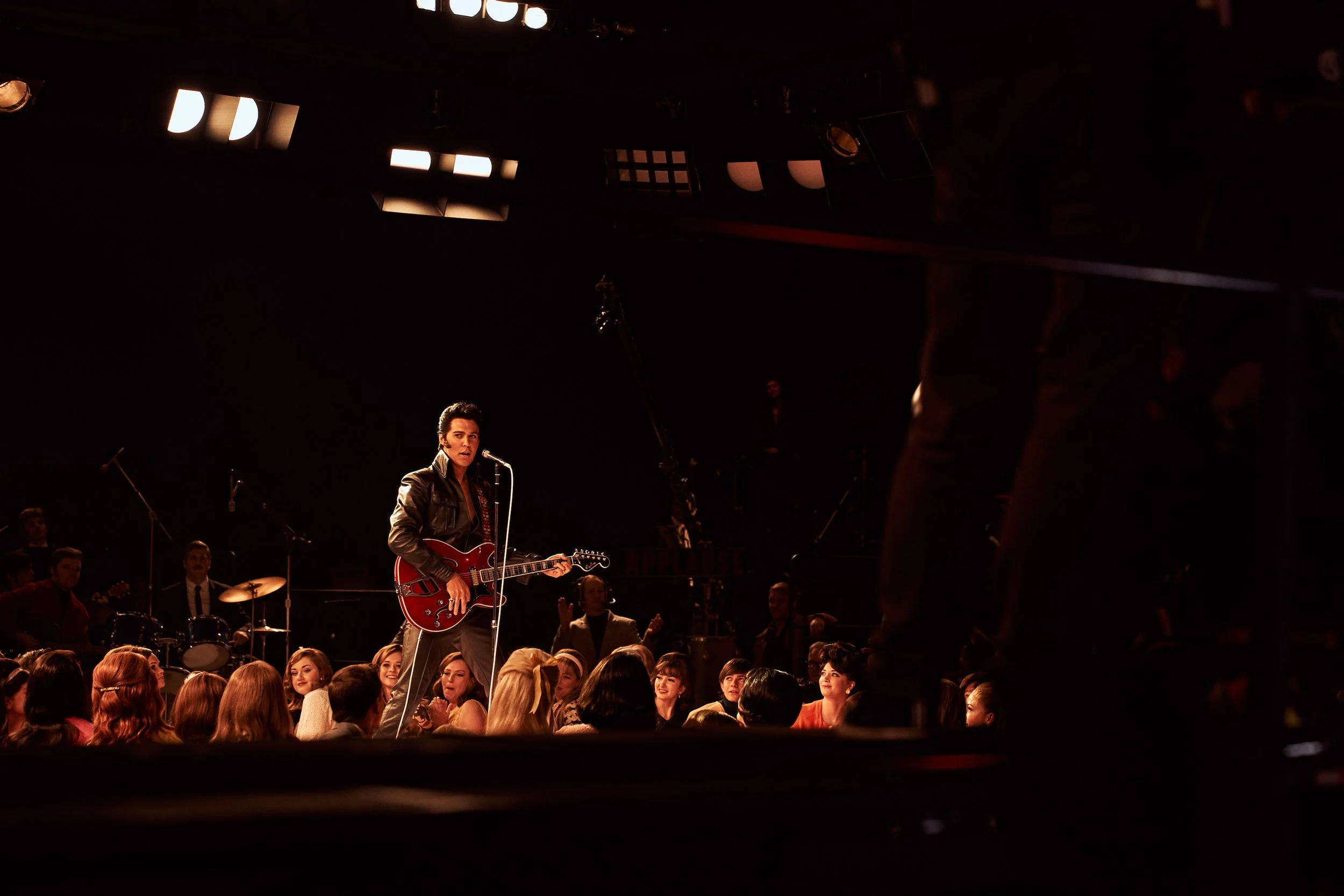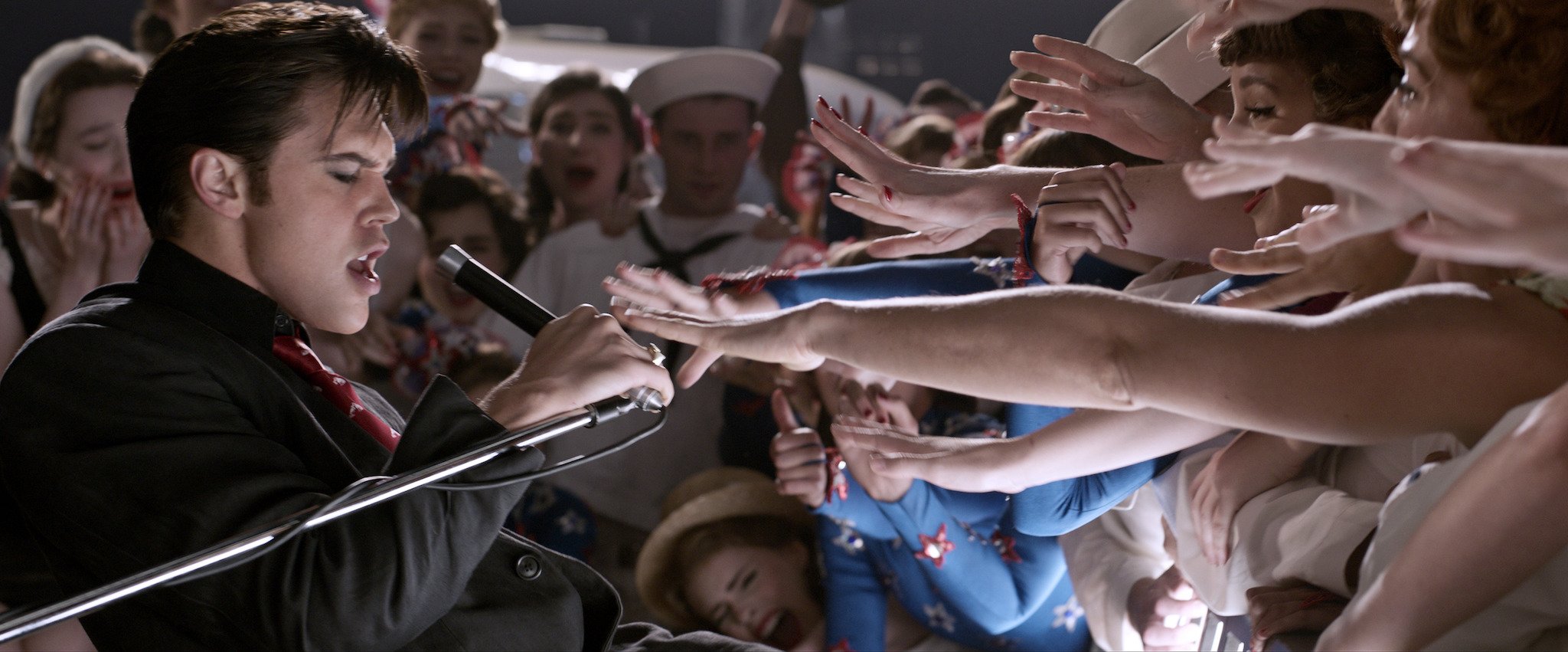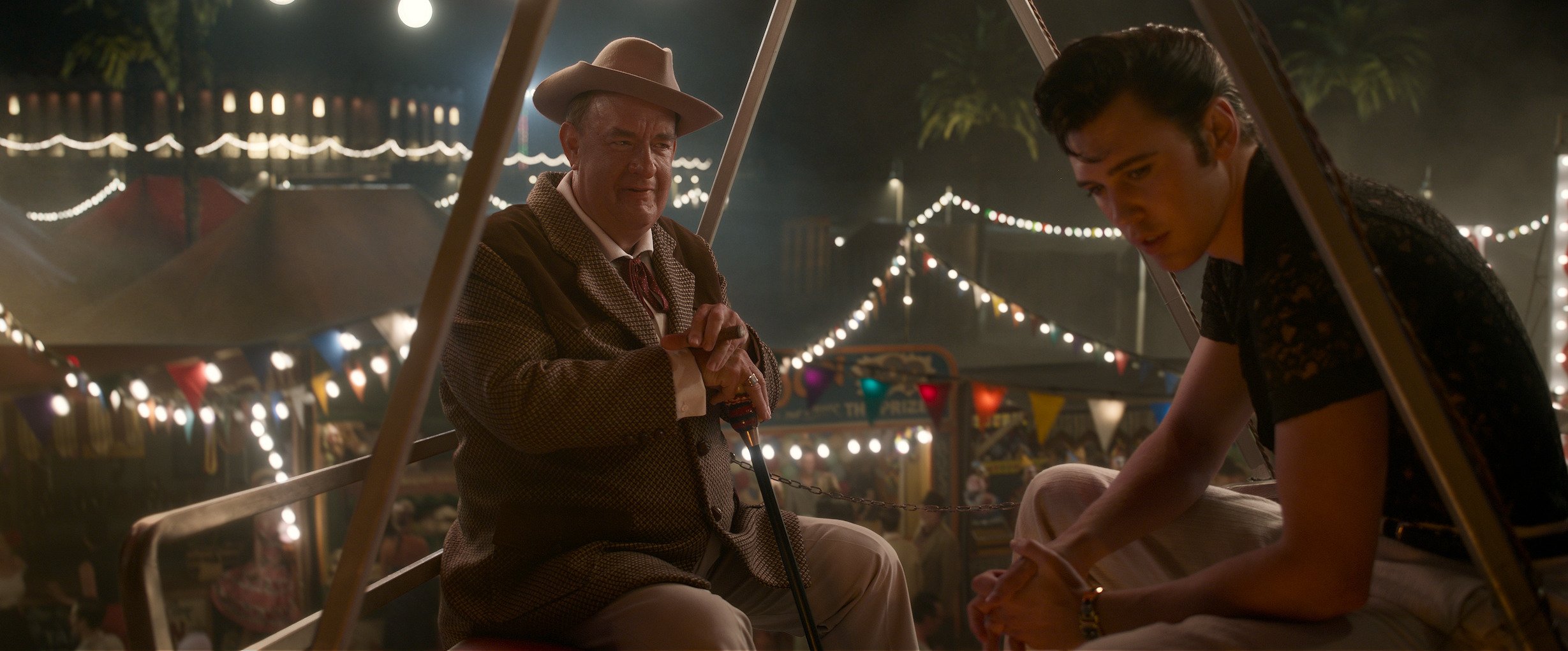All Hail the King
IN A bATtle of OTT glee, gaudiness and gilt, is there a better cinematic match than Baz Luhrmann and Elvis Presley?
Elvis
Director: Baz Luhrmann • Writers: Baz Luhrmann, Sam Bromell, Craig Pearce, Jeremy Doner
Starring: Austin Butler, Tom Hanks, Helen Thomson, Richard Roxburgh, Olivia DeJonge, Luke Bracey, Kelvin Harrison, David Wenham
Australia/USA • 2hrs 39mins
Opens Hong Kong June 23 • IIA
Grade: B
I’ve been to Graceland. While on a guided tour of the gaudy digs where the King of Rock N Roll once lived in Memphis, Tennessee, a group of Scots also joined in. I found their occasionally snarky comments endlessly entertaining, but the Americans on pilgrimage were not amused. At. All. True story. So it should come as no surprise no one in Hollywood would want to set themselves up to be tarred and feathered for defiling the legend of The King should his legions disapprove of the final product. Put it this way: the “Beyhive,” “Swifties,” and toxic Star Wars nerds have nothing on the original pop culture fandom. This was the guy The Ed Sullivan Show, famously, wouldn’t film below the waist lest those hips wiggle. Only a band of outsiders freed of the idoltry could attempt Elvis Presley’s biography.
So Australian director Baz Luhrmann tries his hand with Elvis, a sprawling, ambitious biopic (with all the expected beats – childhood, rise, stardom, betrayal, reemergence, redemption, check check check), told partially from the POV of Presley’s long-time, manipulative, exploitive, unethical manager Colonel Tom Parker, many of whom point the finger at as a contributing factor to Presley’s death at 42 in 1977. Parker was undoubtedly a crucial part of the Elvis story, and he needs to be included, but spending so much time on him is one of the few missteps in an otherwise perfectly paced ideal marriage of material and creator. Elvis is the culmination of Strictly Ballroom’s small town ambition, the gilded grandiosity of The Great Gatsby, and the musicality of Moulin Rouge!.
There are likely plenty of Luhrmann fans who have no idea who Presley is, or why we’re still talking about him. In many ways he was one of the media age’s earliest superstars. Before there was the BTS Army, before Duranies, before Beatlemania, there was Elvis. Before parents and “legal authorities” freaked out over gangsta rap there was Elvis and his suggestive hip gyrations. After he publicly got a polio shot in the ’50s vaccination rates skyrocketed (fancy that?). He was a racist (probably not), he flouted segregation laws in the South (fairly well documented), he would have been related to Michael Jackson had he lived longer. And buddy legit had pipes, so.
Needless to say Luhrmann has his work cut out for him. Elvis begins with the Colonel (a miscast Tom Hanks) watching a young Elvis (Austin Butler, Arrow) perform for a popular Louisiana radio show shortly after cutting his first record for the legendary Sun Records in 1954. From there we get a pastiche of typically Luhrmann-esque manic camera movement (the controlled chaos is by DOP Mandy Walker), bursting colour, Dutch angles and glittering light that layers Presley’s influences – specifically the Black neighbourhood he grew up in and its church – over his early life. It’s scrapbooking, packed with delirious screaming and underwear tossing, girls becoming women in his presence, and subsequent disapproval from the olds, but it lays the groundwork for the meat of the story unfolding between a 1968 “comeback” TV special and an OTT Las Vegas residency. The fraying relationship between Presley and the Colonel, and the latter’s increasingly shady moves in a desperate bid to hold on to his meal ticket is ripe with drama, and it’s then Luhrmann and costume designer Catherine Martin really cut loose (there is a special “jumpsuit” credit). And fortunately the incredible visuals and stellar music overshadow Hanks’ flat performance as that POS manager. Parker should have been given either more depth or simply straight up twirled his moustache.
Luhrmann does his damnedest to draw a line from Southern gospel and R&B to Presley to where we are today (aside from Presley on the soundtrack are Jazmine Sullivan, Doja Cat, Swae Lee and Kacey Musgraves among others) and he does a moderate job of it. Less successful is how he and co-writers Sam Bromell, Craig Pearce and Jeremy Doner position Presley within the turbulent 1950s and ’60s. They flirt with more substantial commentary when the story gets to ’68, the year MLK and RFK were murdered and Presley did his TV special. There’s an acknowledgement by Presley himself, he watches the MLK memorial on TV, and he caps his own show with his first protest song (“If I Can Dream”) but Luhrmann and Co don’t go beyond that, and anyone looking for insight into what made Presley tick as an artist need look elsewhere. Want to know how more about Elvis and his wife Priscilla’s (Olivia DeJonge) connection, or Elvis and his beloved mother Gladys (Helen Thomson)? Ditto. But Luhrmann is just as interested in Presley as an artefact of performance, and he’s also keen to keep the polish on it. We don’t get bloated Vegas Elvis here. There’s no mention of his (alleged) toilet seat death. It’s not quite hagiography, but Elvis celebrates what was great about The King. And enough can’t be said about Butler (who’ll be taking the Sting role as Feyd-Rautha in Dune: Part Two), who is perfectly naïve, tragic, angry, sexy and defiant in turns. He captures the essence of what made Presley a star, and in his way, in his time, dangerous. And a white boy giving props to Black culture? That’s worse than the gyrating.
And in case it has to be noted: The wall of sound that is this soundtrack is killer. Duh. — DEK



